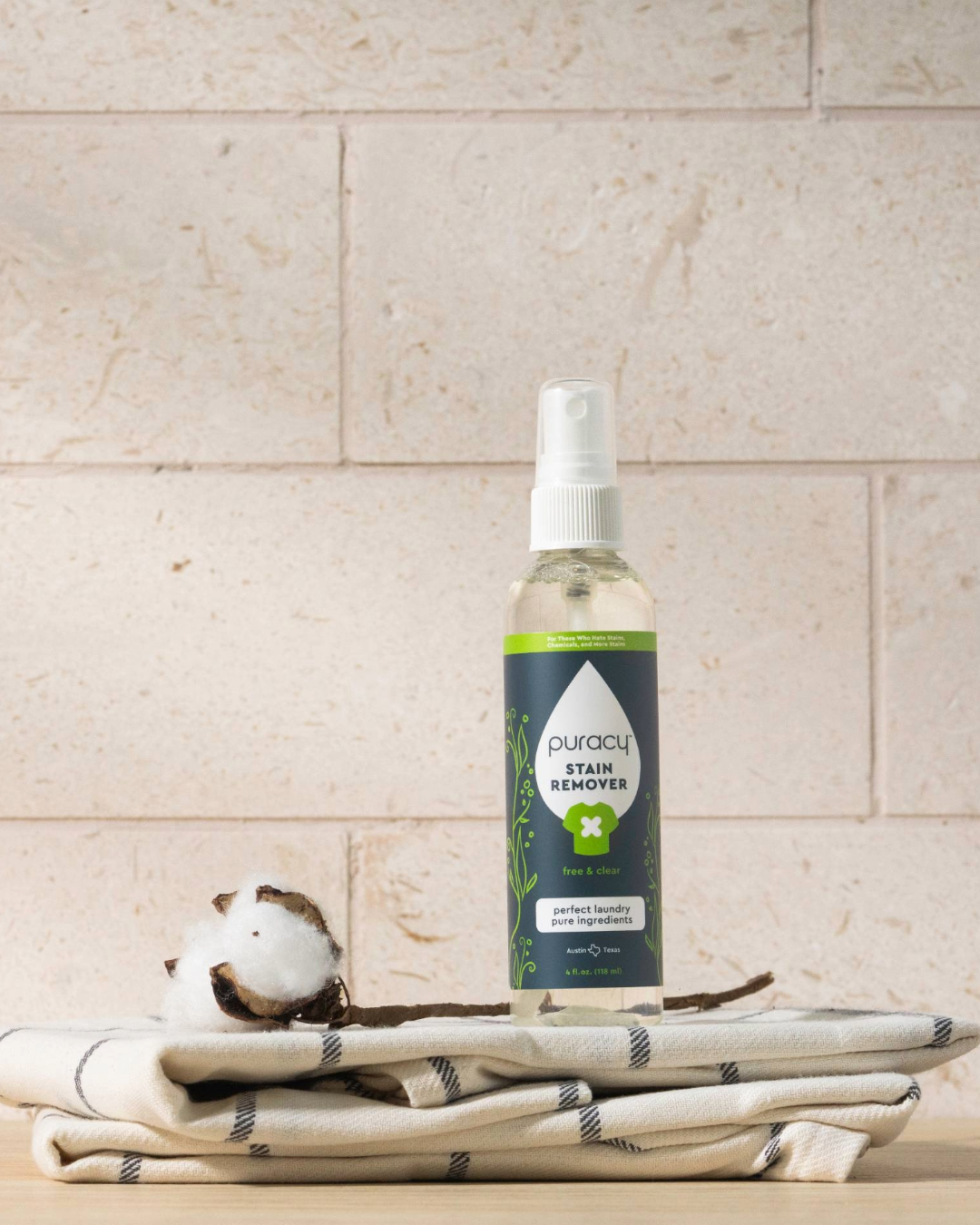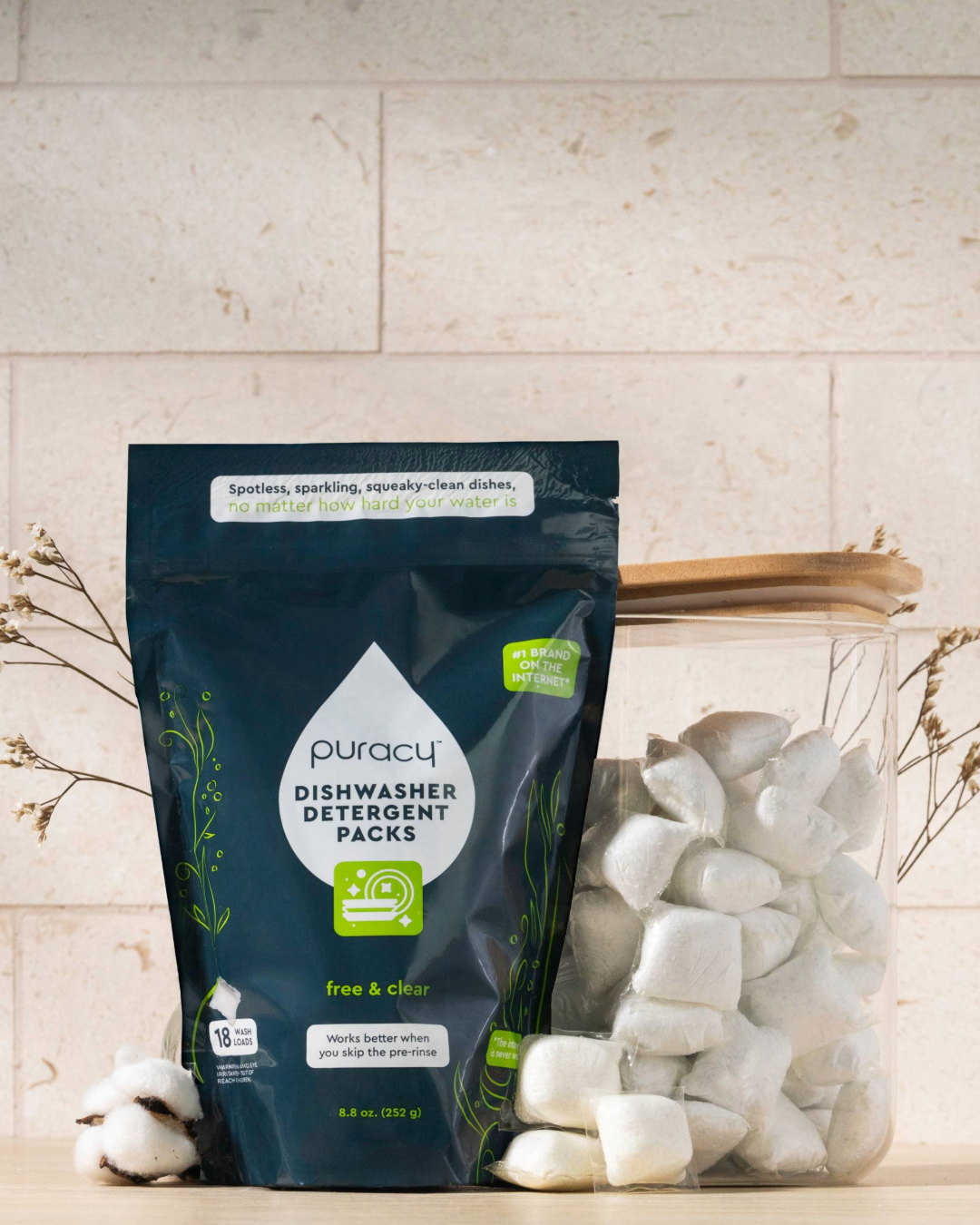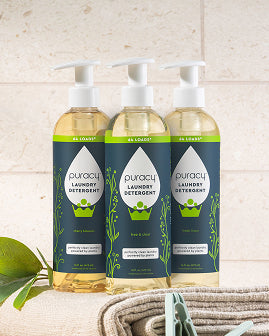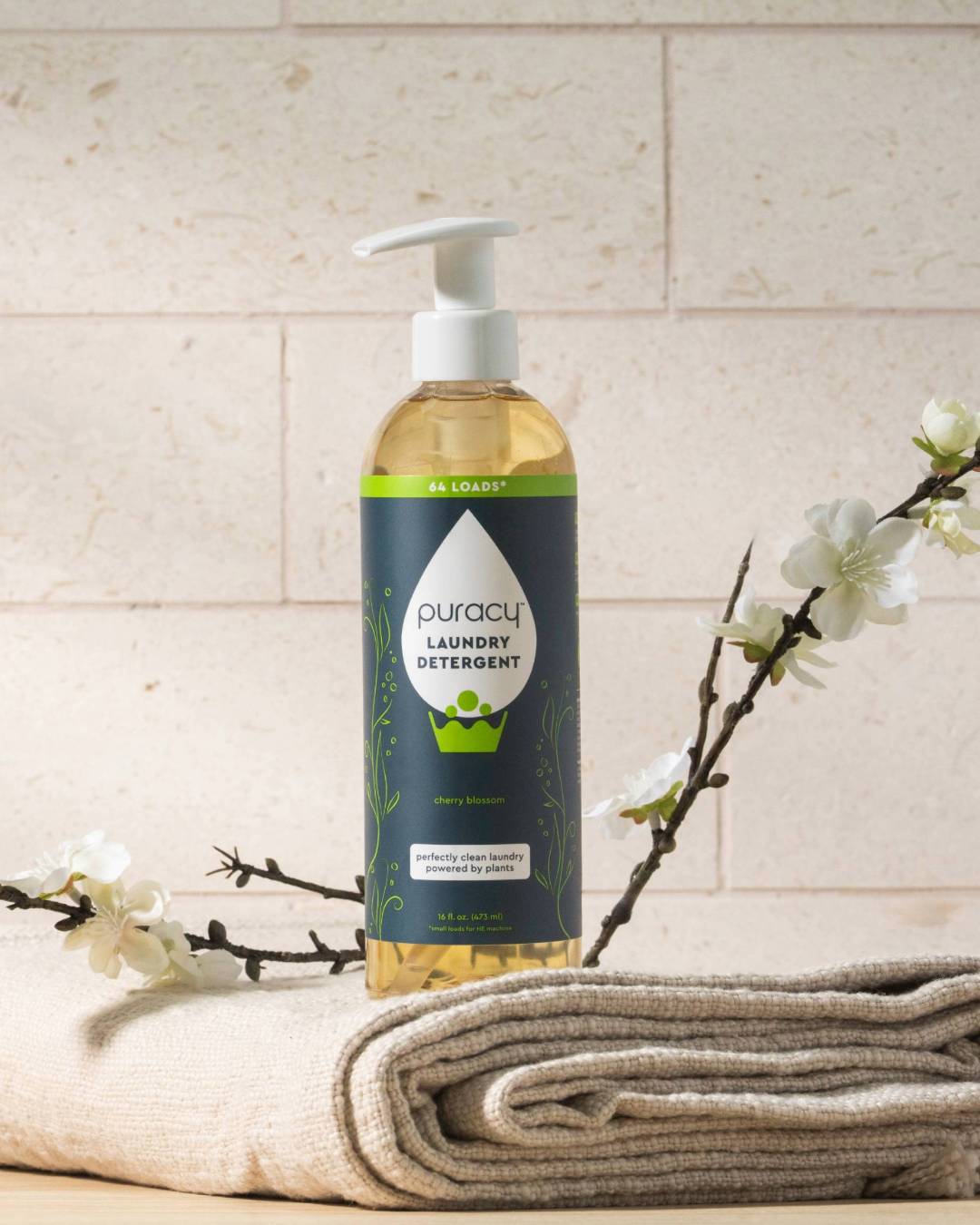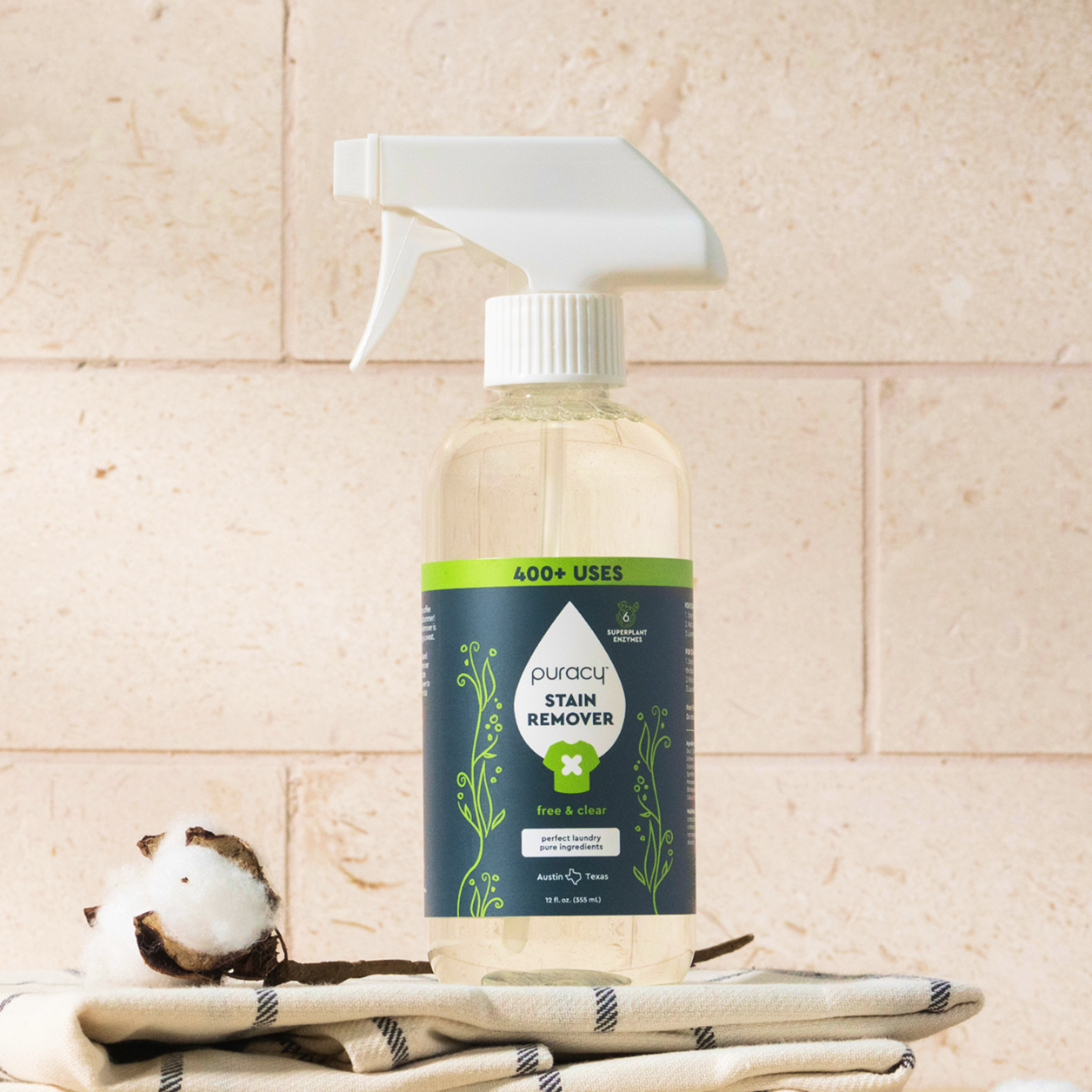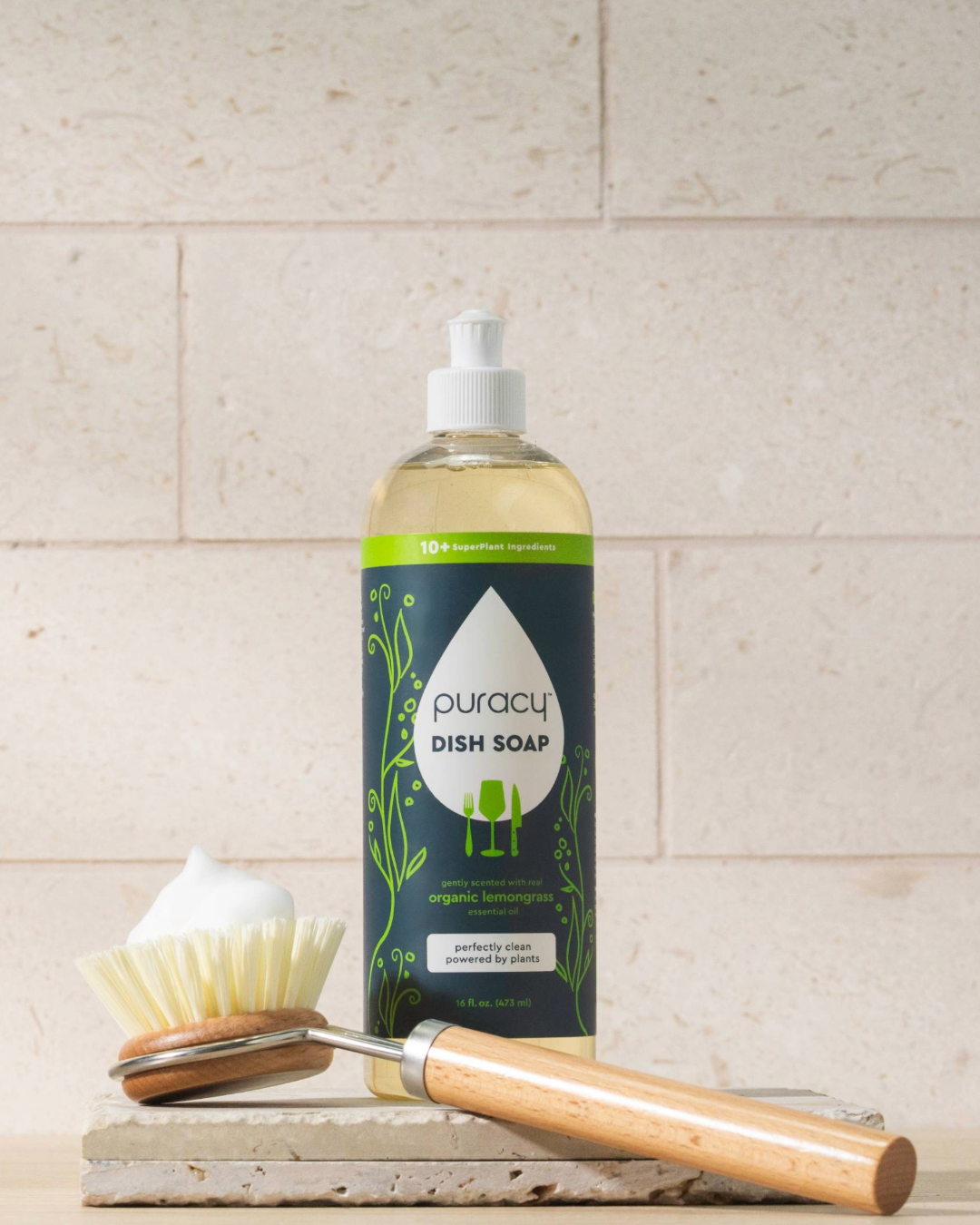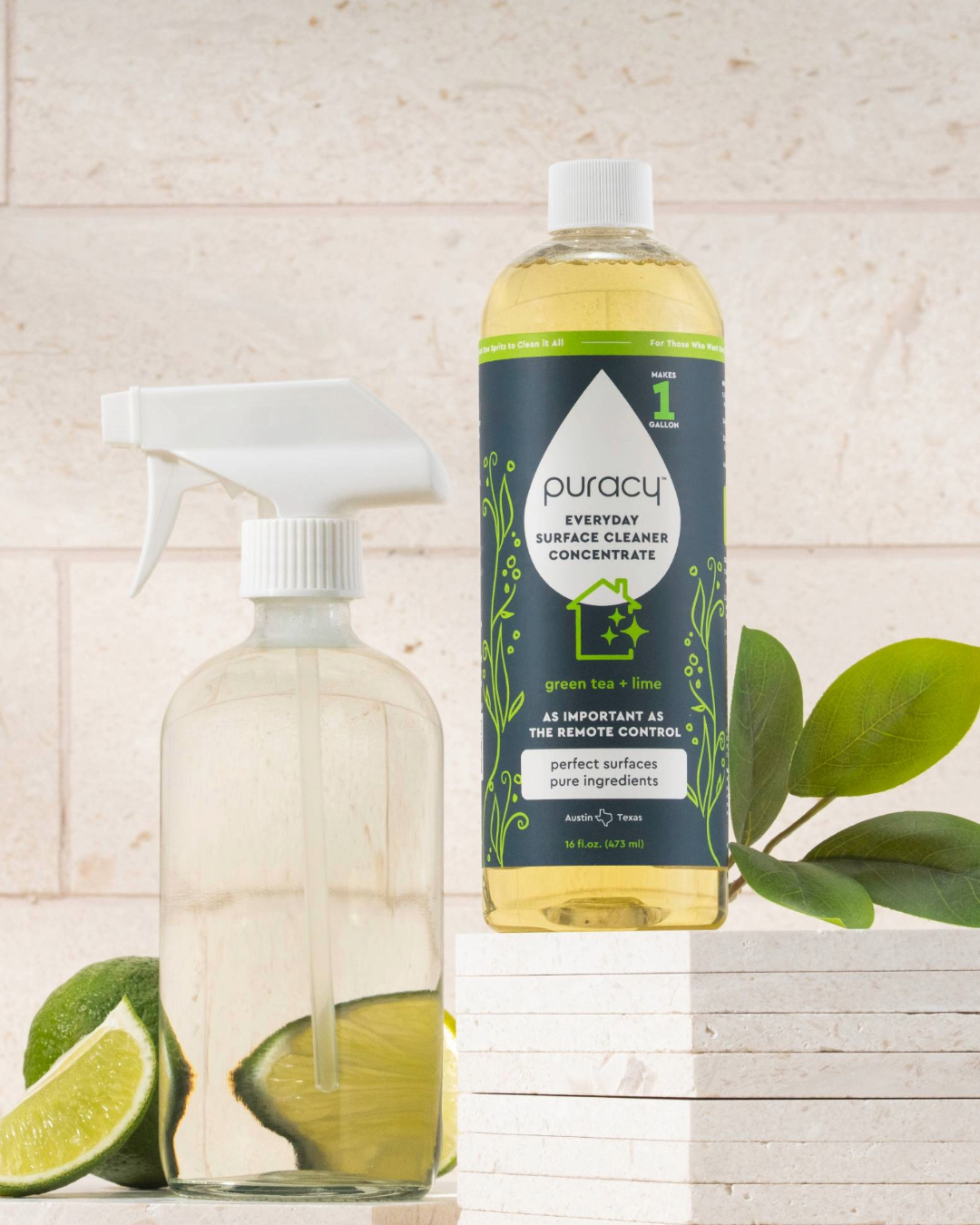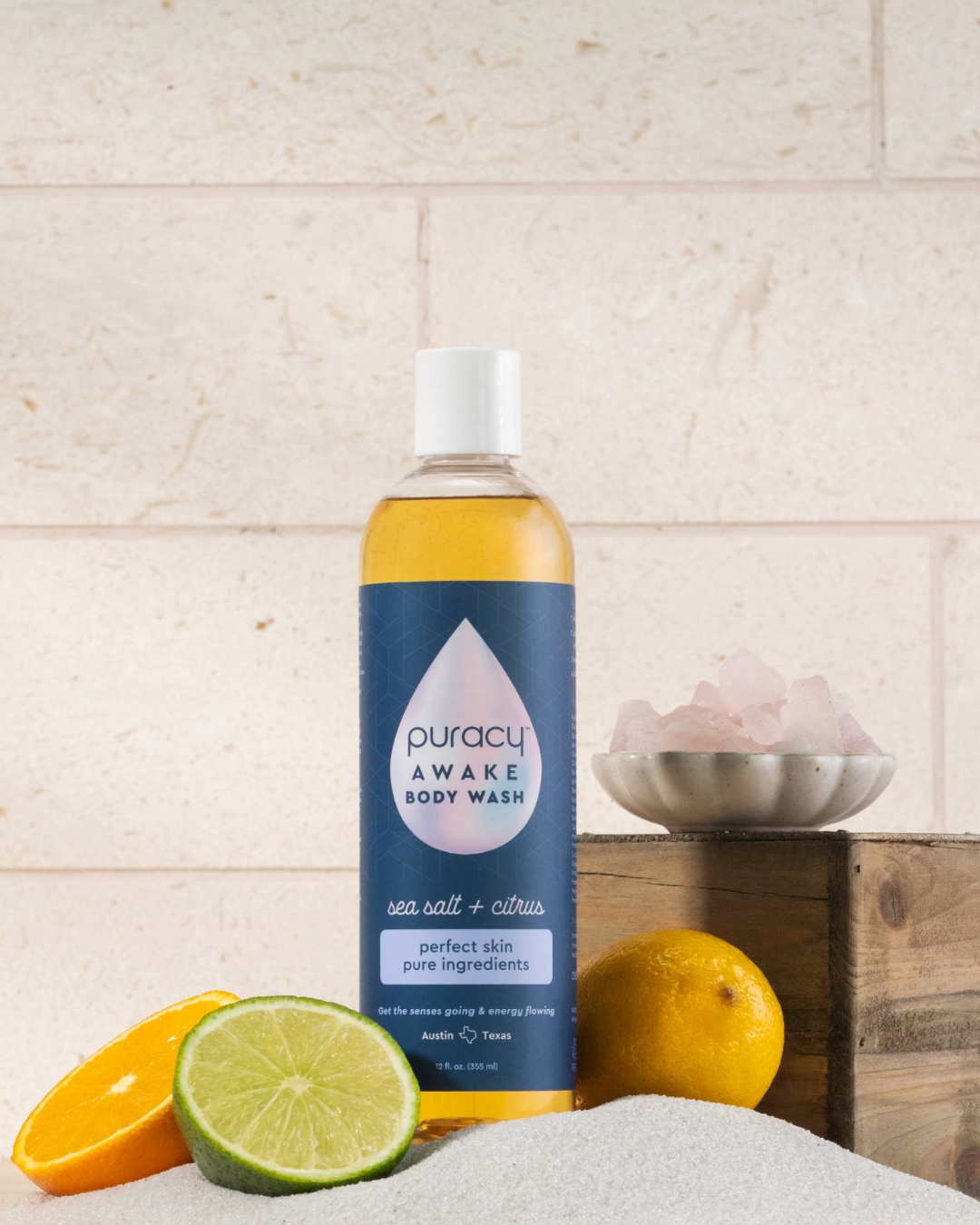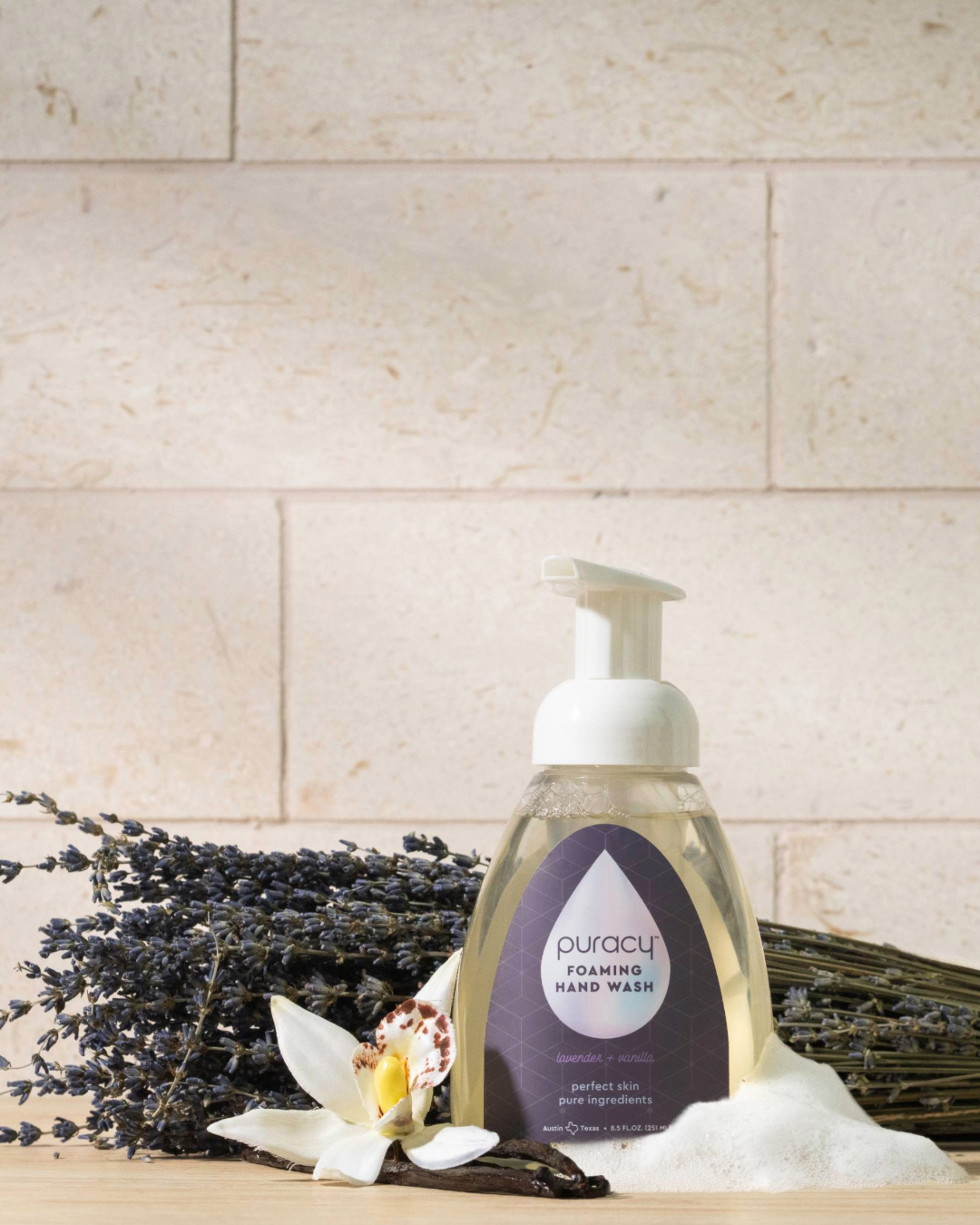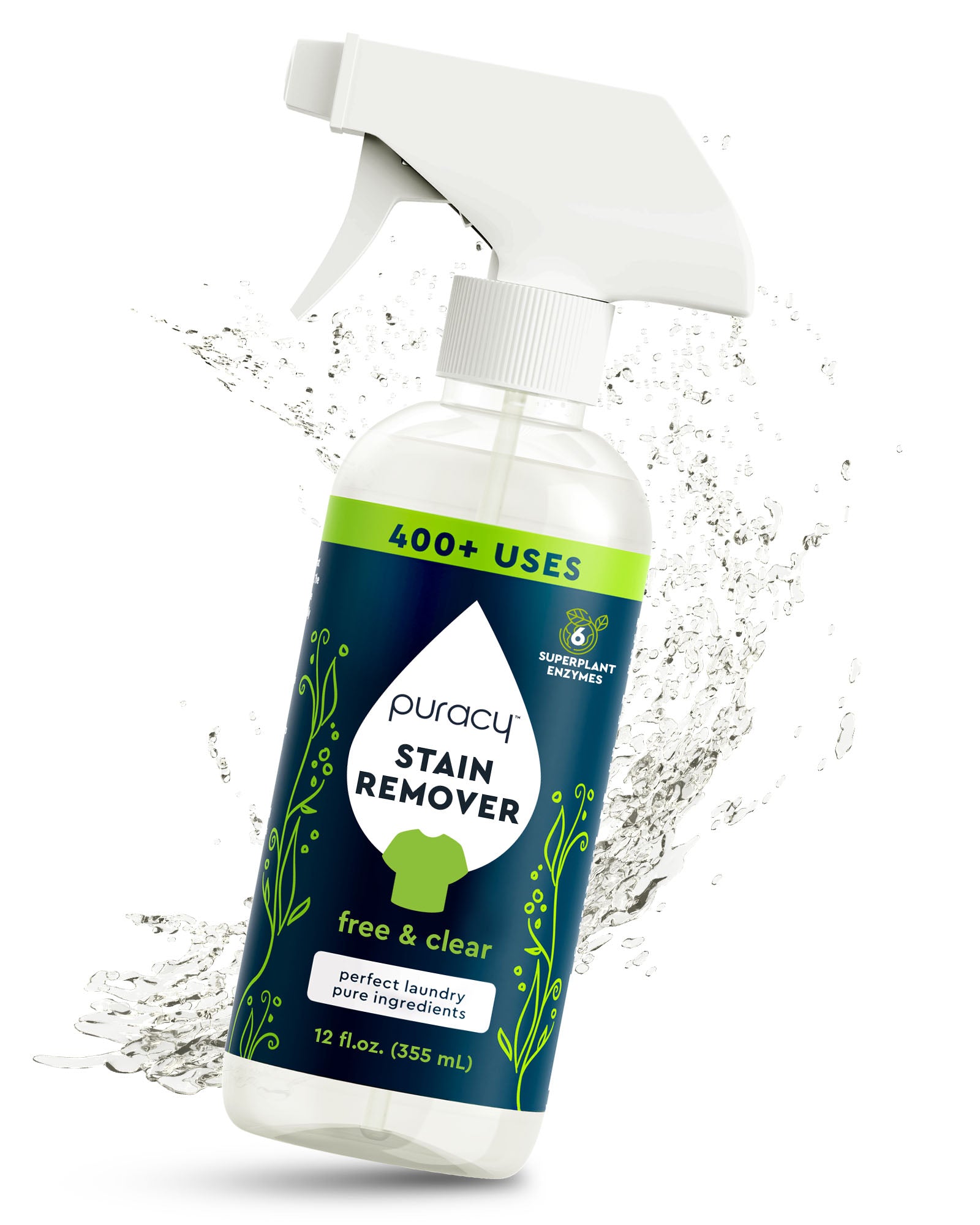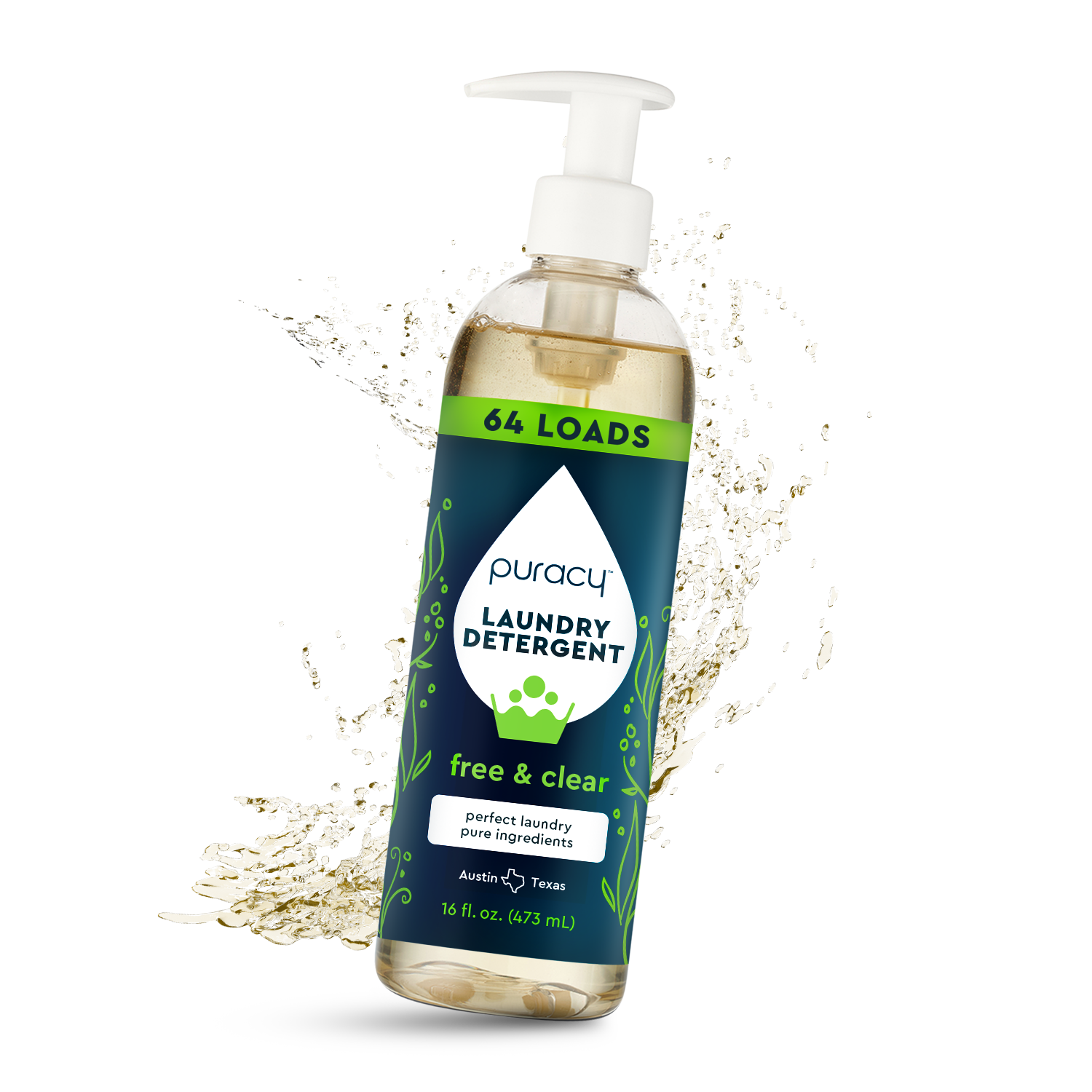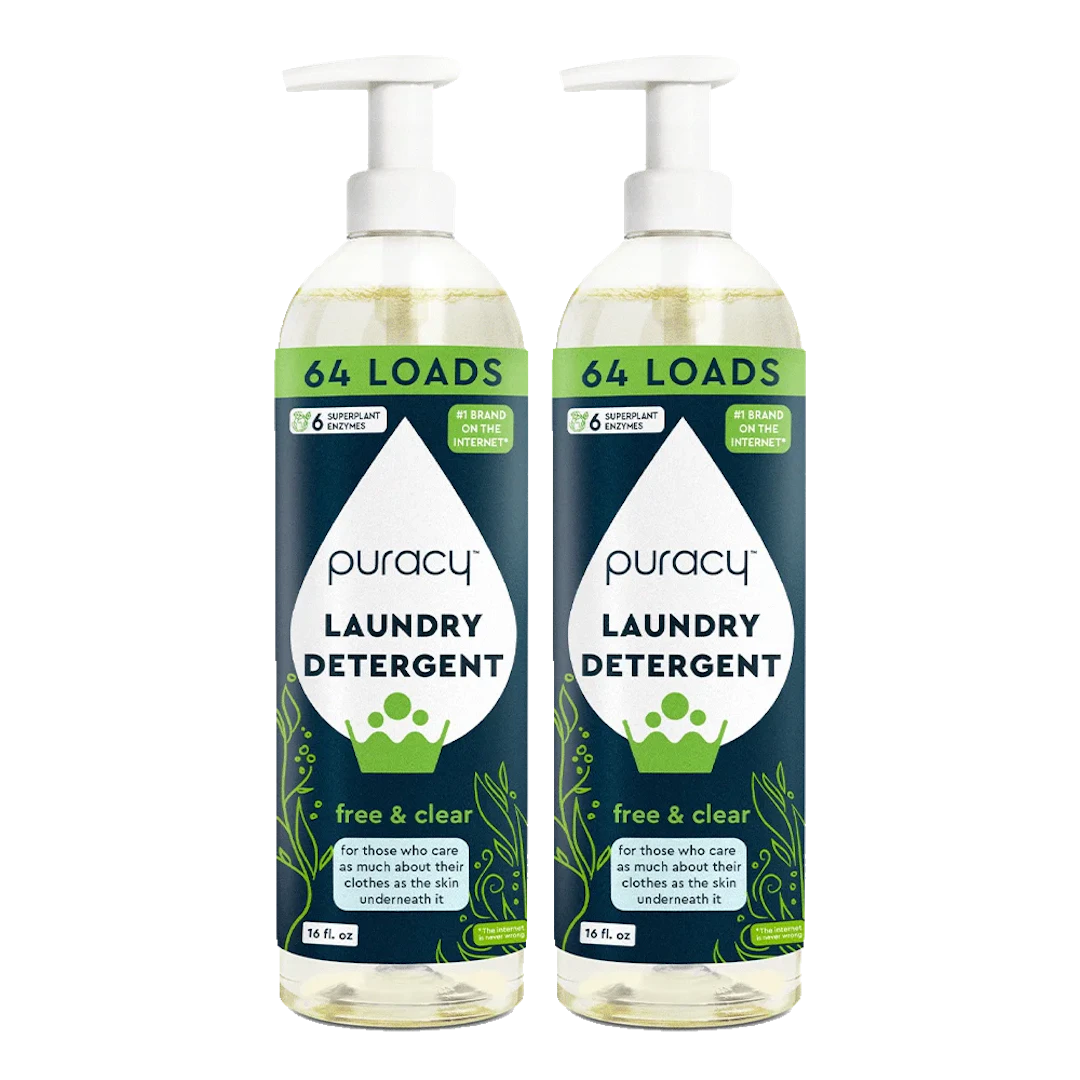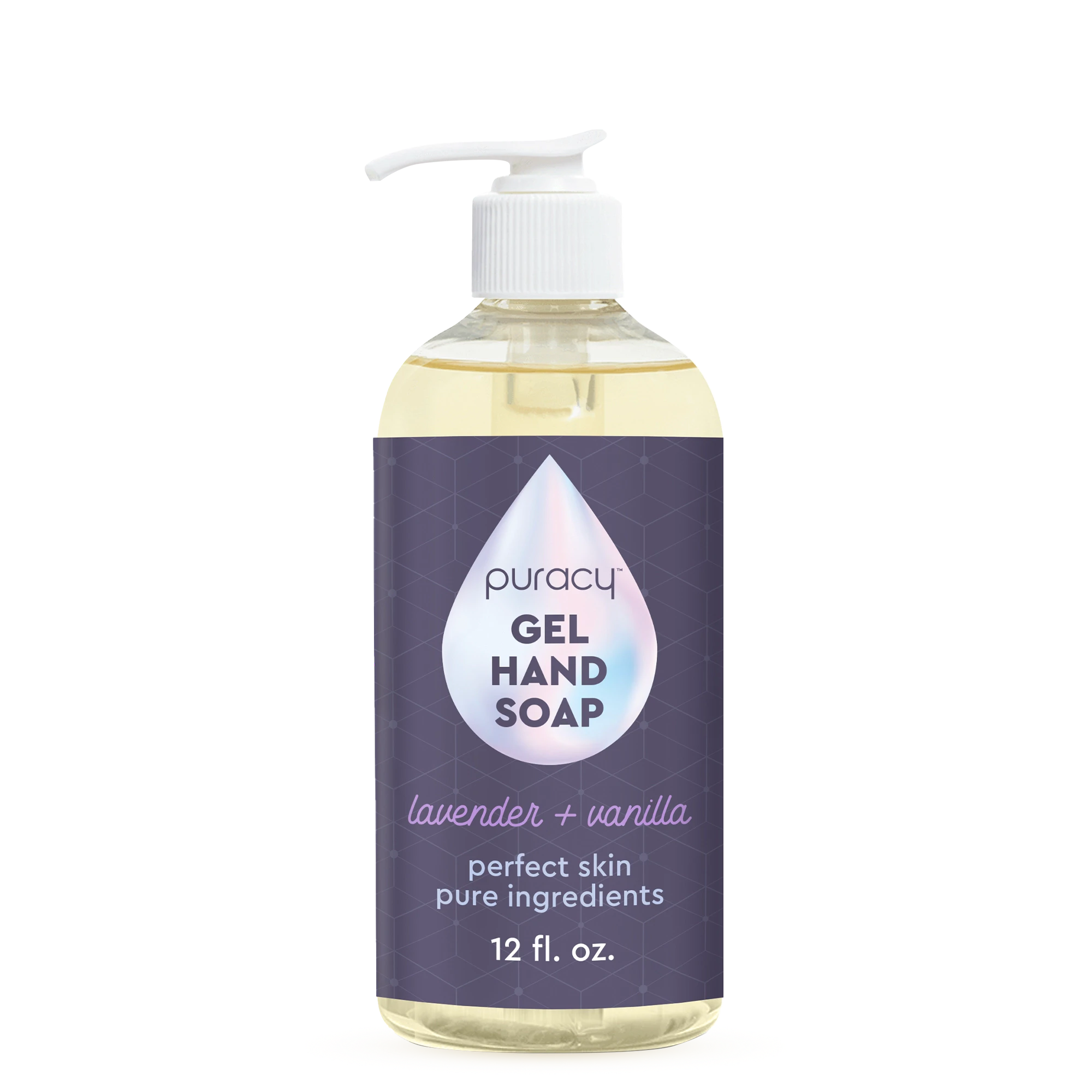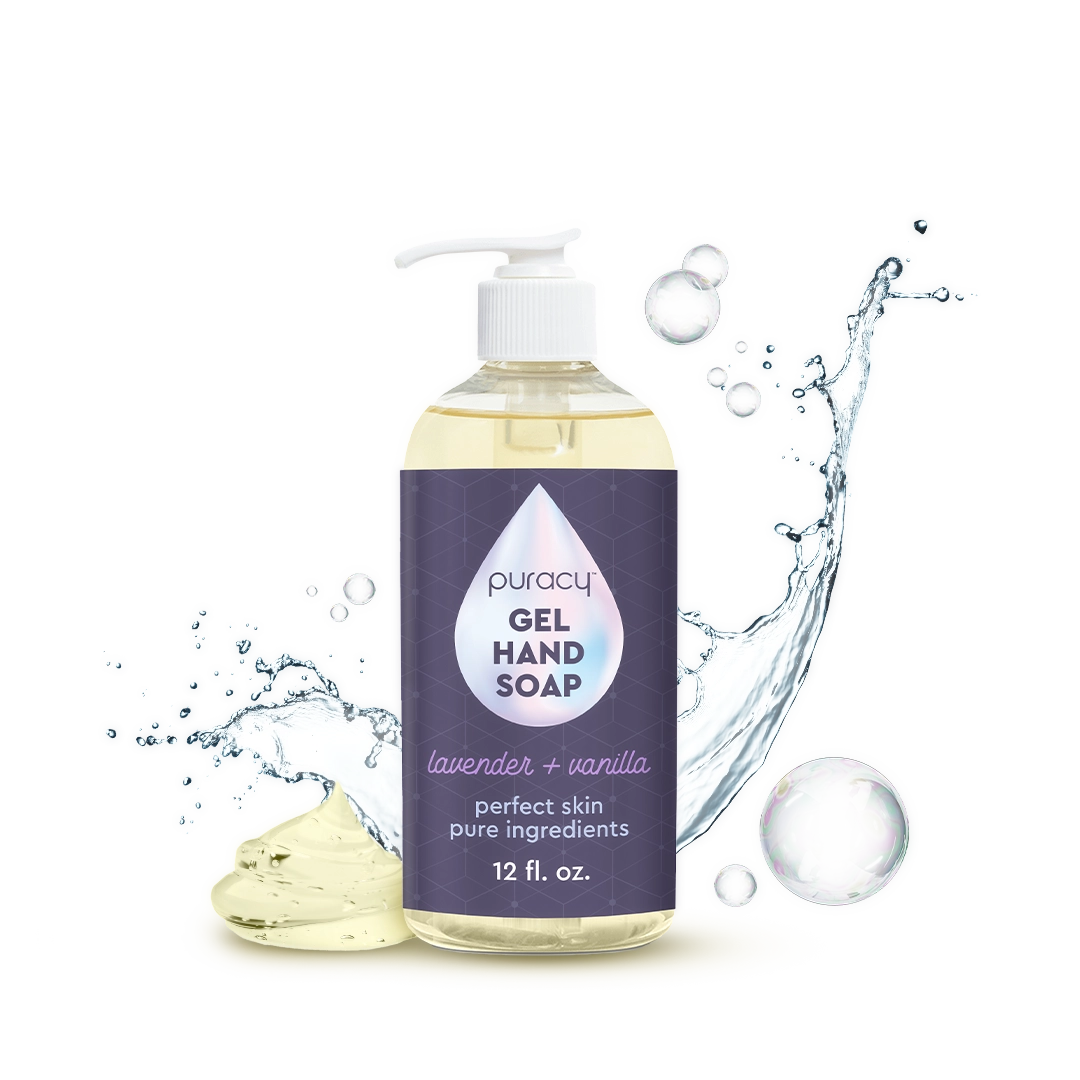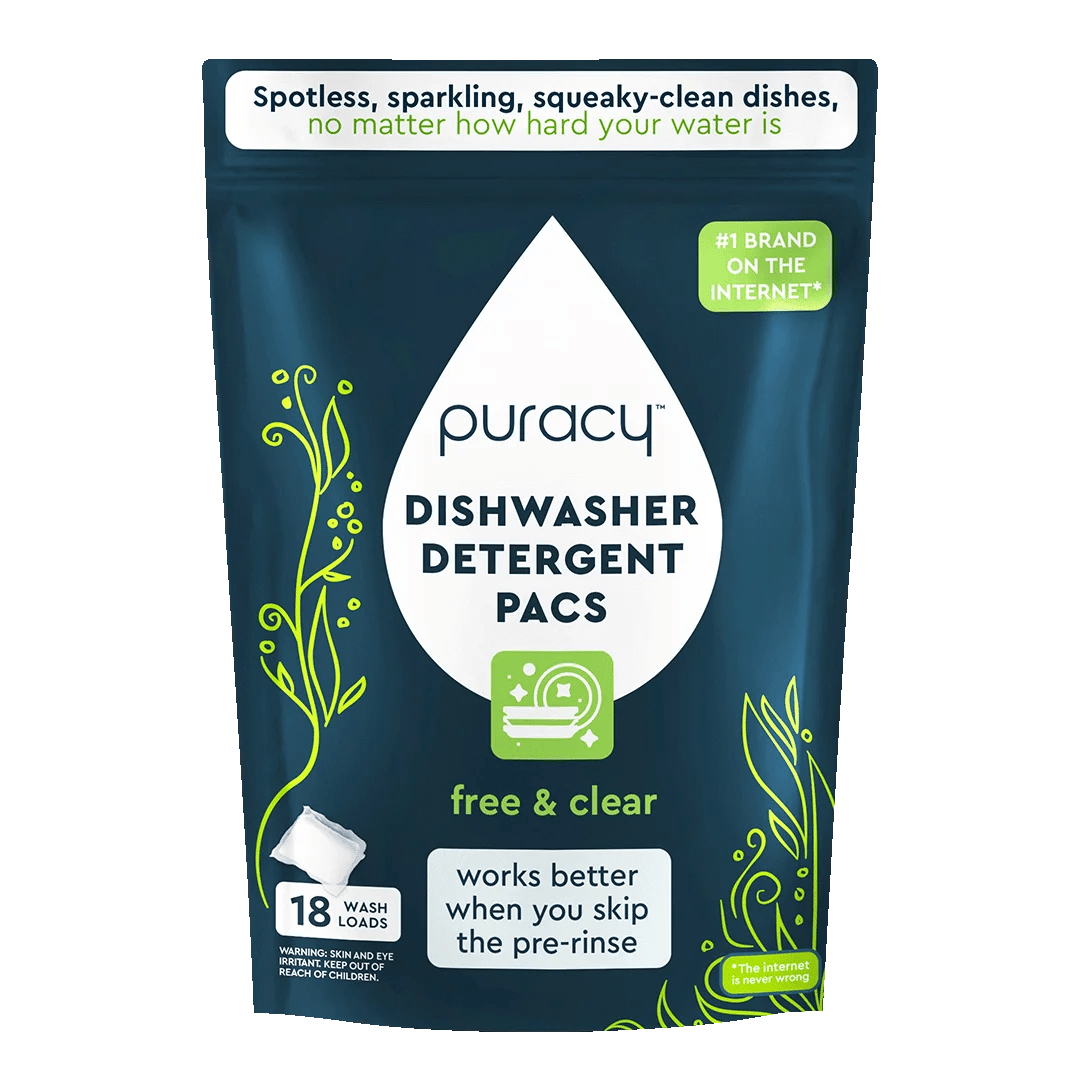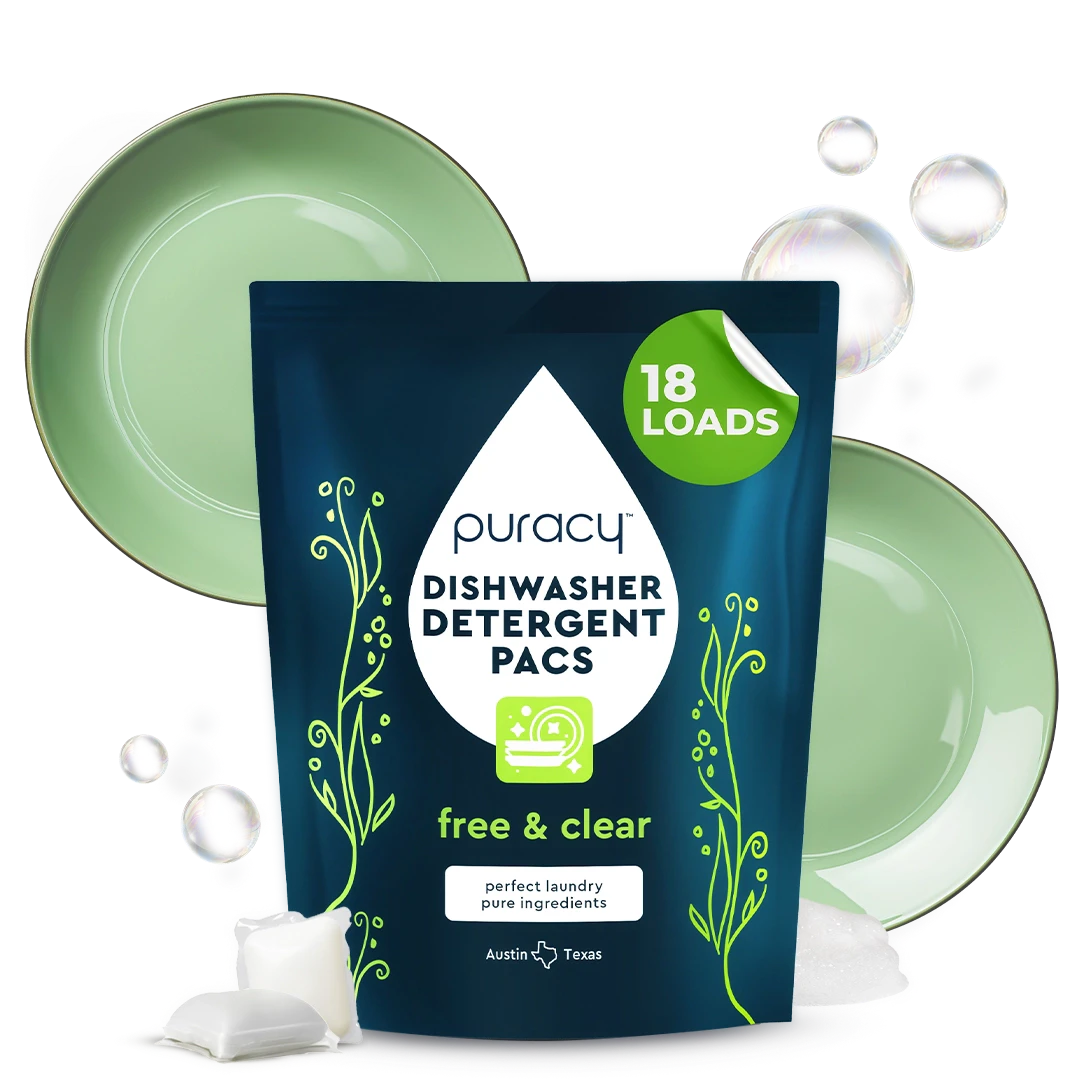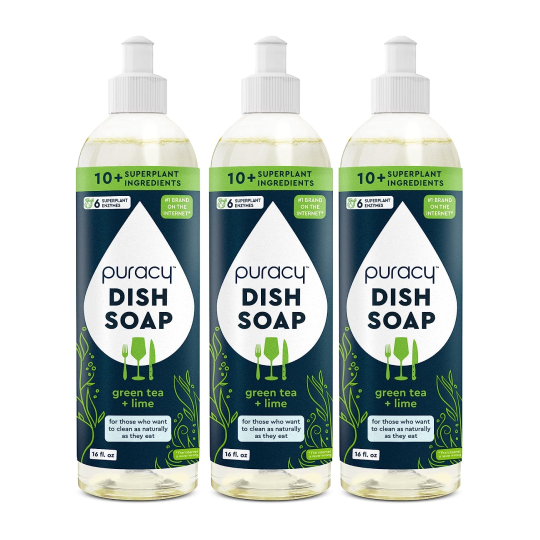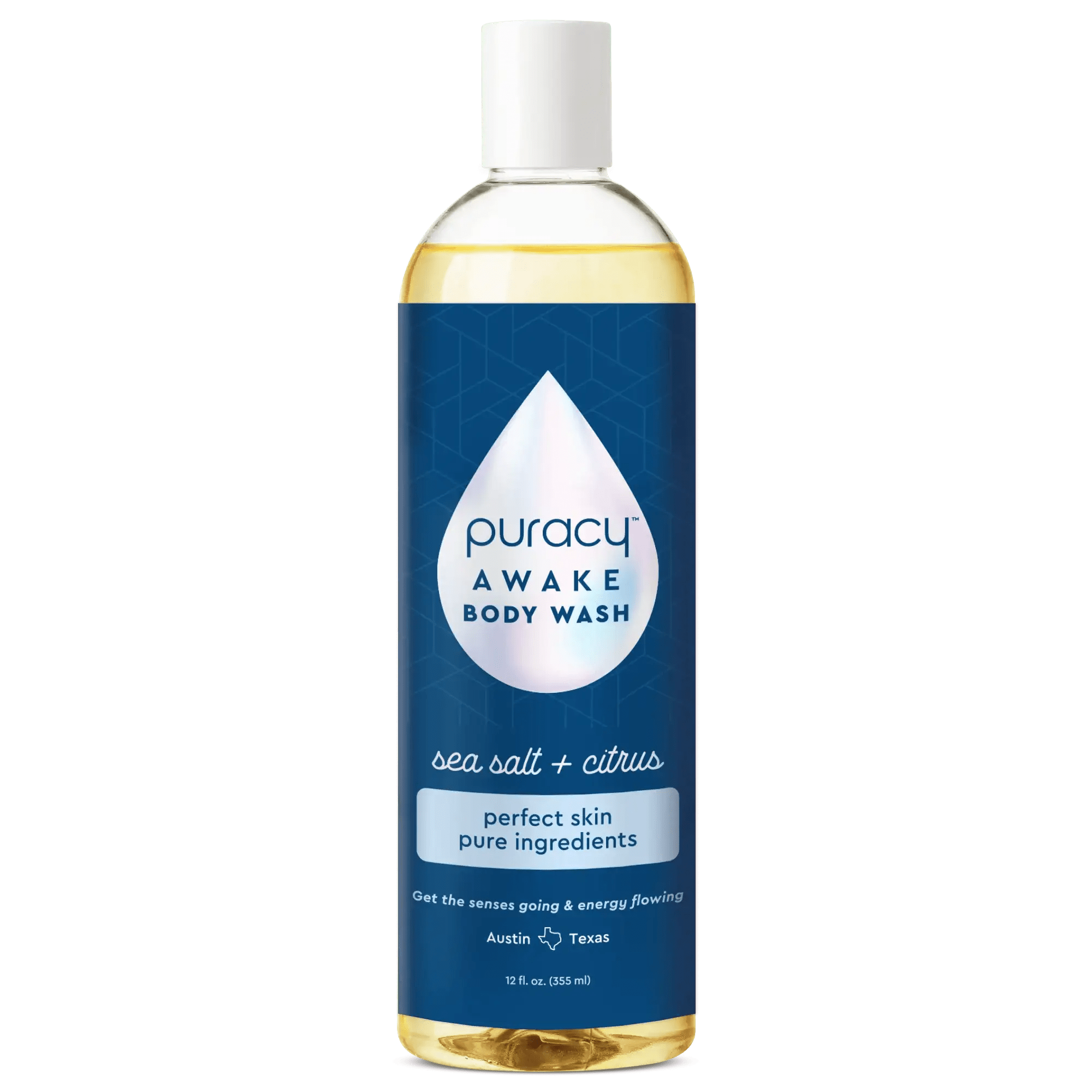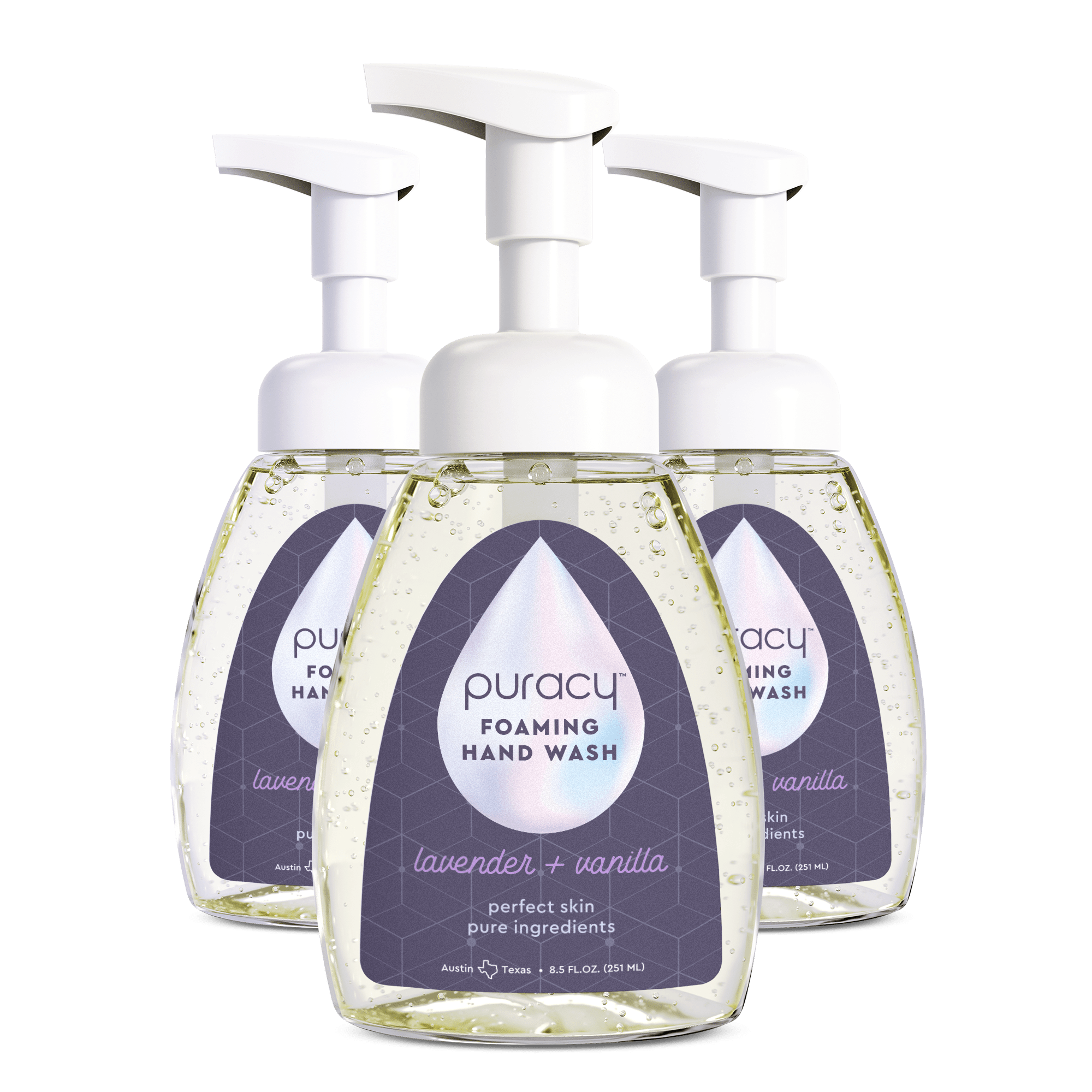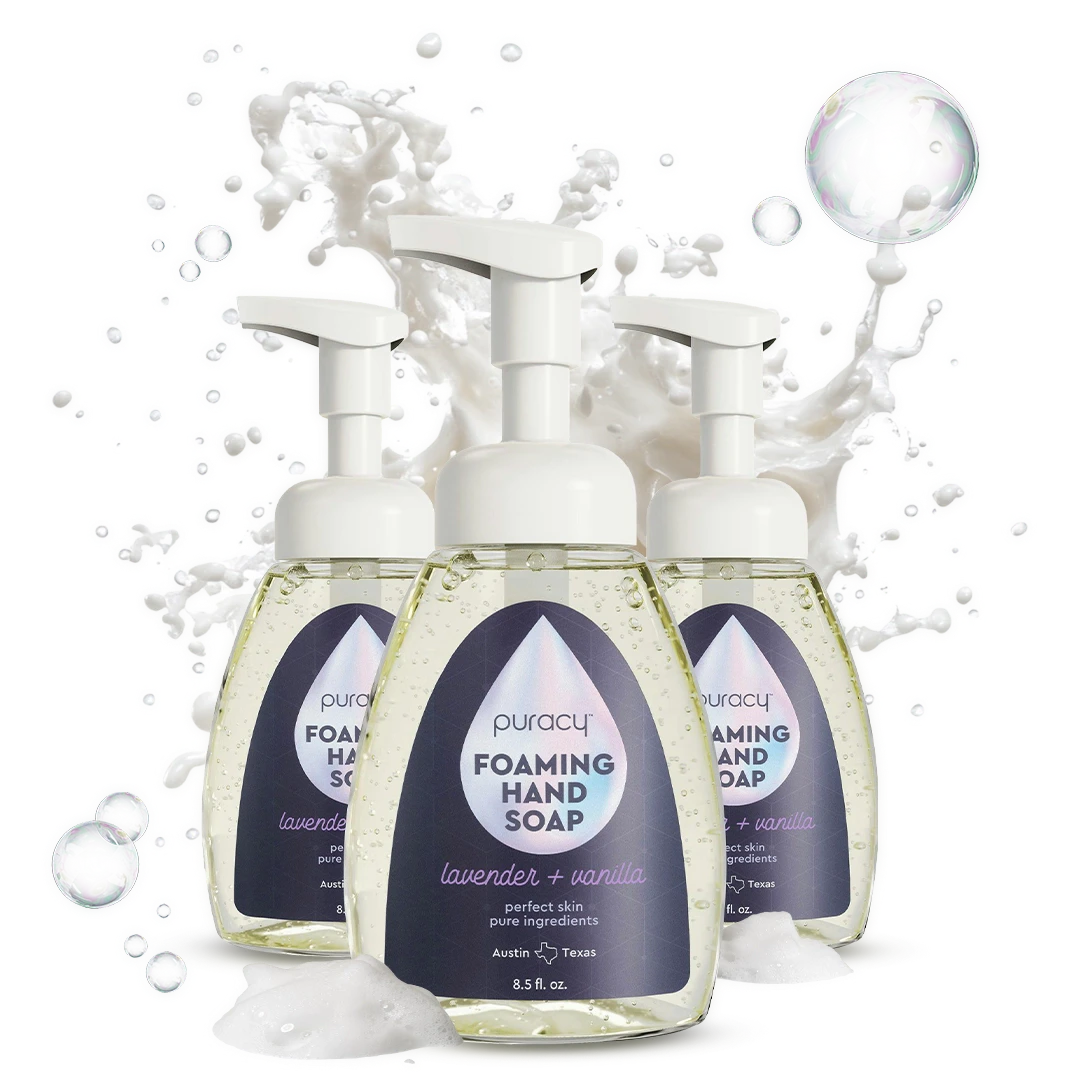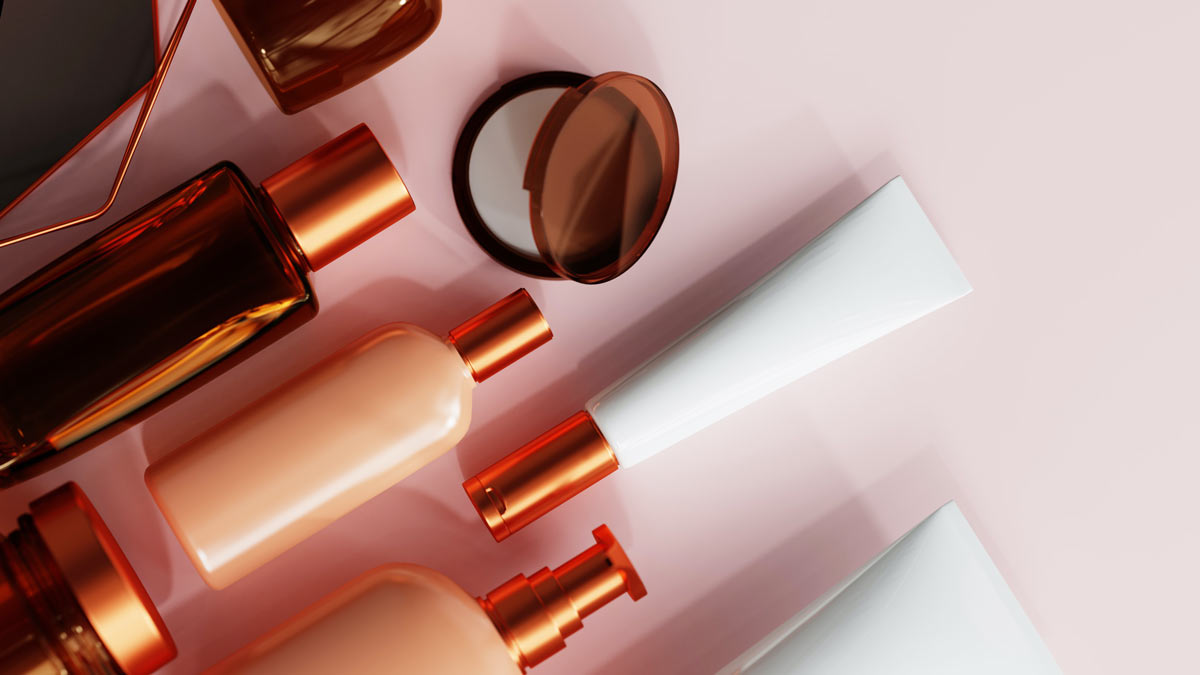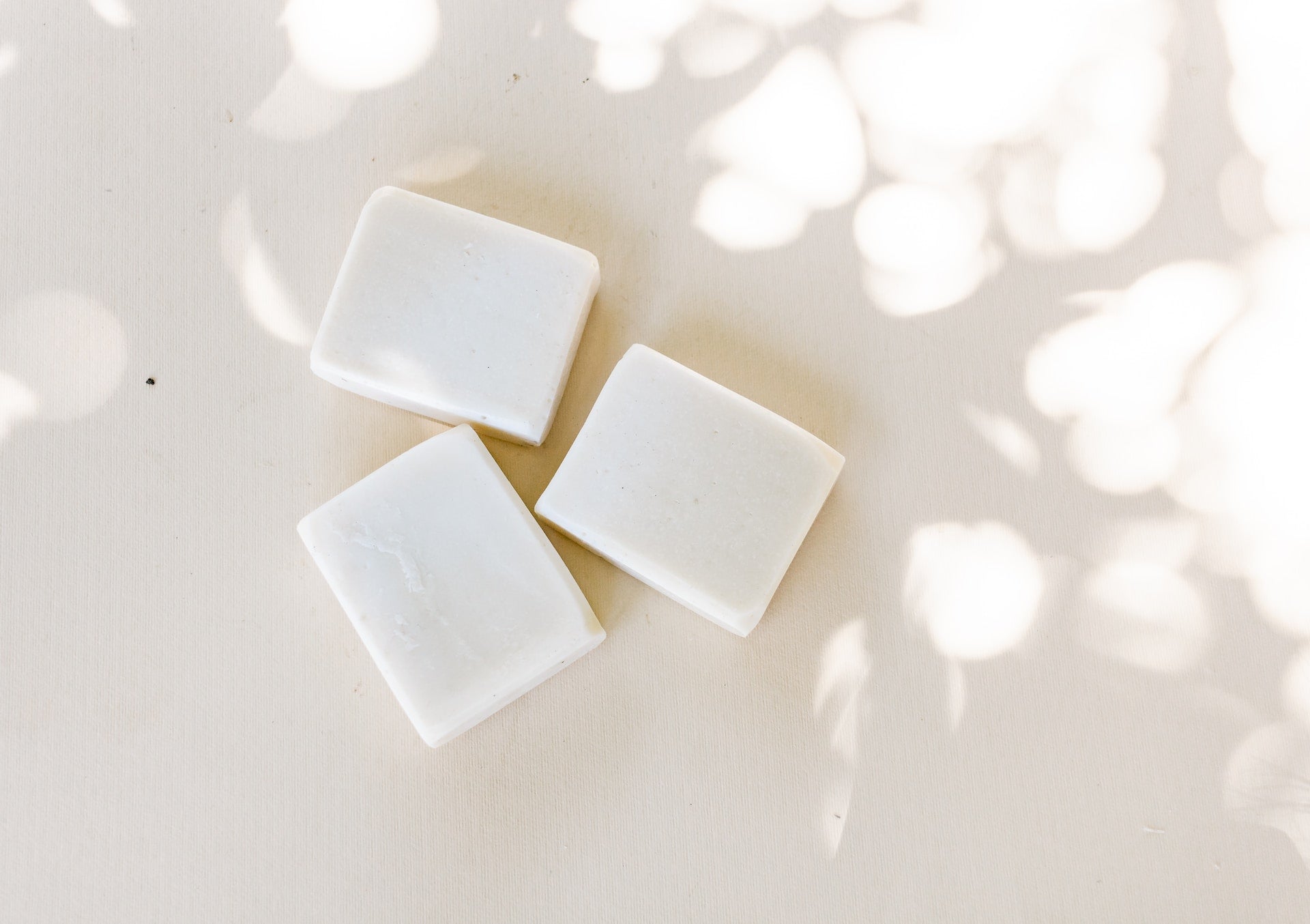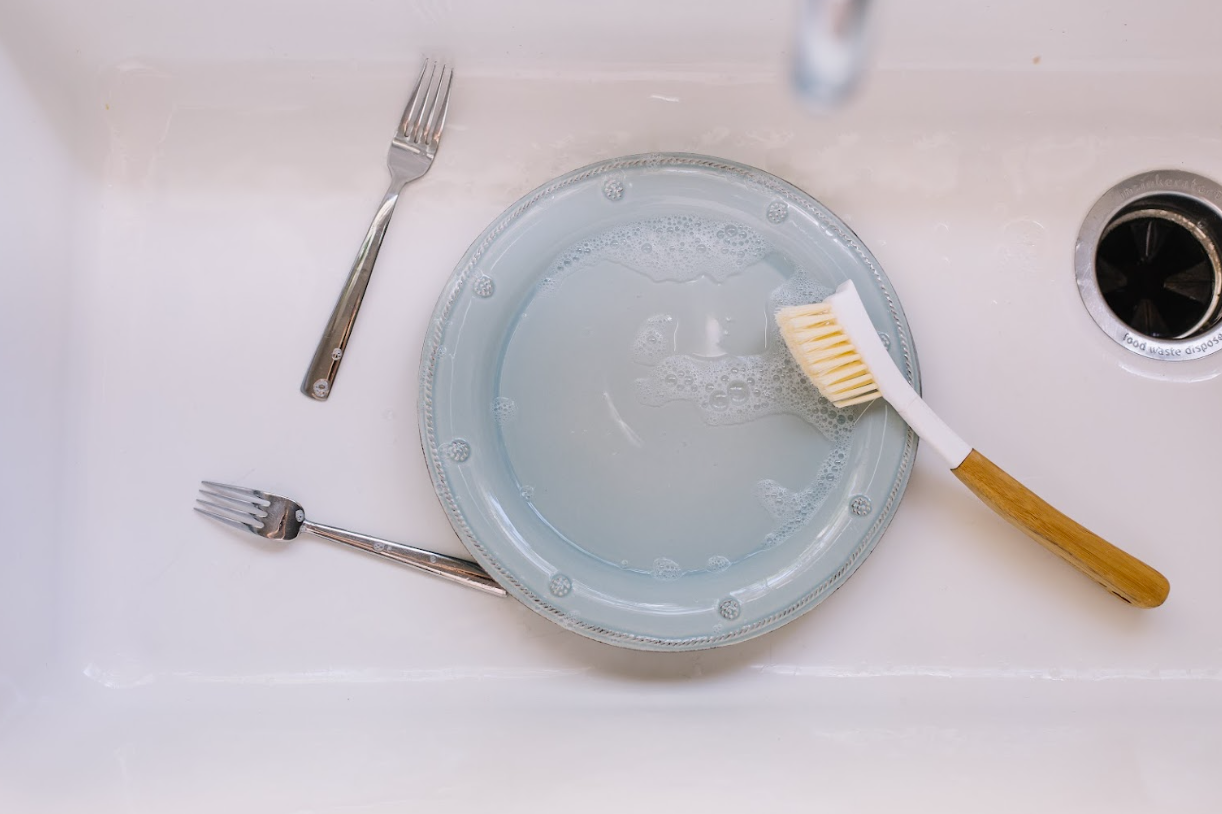
Is Dish Soap Residue Harmful?
Dish soap is a home essential that’s used daily. We wash our plates and pans with it like clockwork. But did you know dish soap residue can be harmful to human health?
There are studies on its effects on the water-retaining barriers of the skin when used frequently. It also poses harm to human health when residue is ingested.
These are some of the factors when residue can cause harm:
- Type of dish soap/ingredients
- Amount of residue
- How often you are exposed
Find out what happens when you use utensils that have soap residue on them, what ingredients to avoid when shopping, and how to avoid residues with a proper rinse in this blog.
What Happens When I Accidentally Eat Soap Residue?
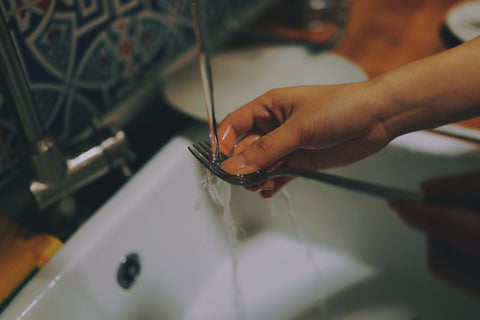
Imagine a busy weekend. You’re moving between household chores and taking care of the kids. You rush to rinse the dishes because there’s a heap of clothes waiting to be attended to for laundry. There’s too much work to be done. It’s possible to leave dish soap residue when you don’t have time to rinse as thoroughly as you should.
Over time, that residue can build up and pose some health risks, including:
Gastrointestinal problems
Dish soap residue can irritate the lining of the stomach and intestines. Symptoms include nausea, vomiting, diarrhea, and abdominal pain.
Skin and eye irritation
It can also cause skin and eye irritation, especially for those with sensitive skin or allergies. Direct contact with the residue can lead to redness, itching, and burning sensations.
Endocrine disruption
Some dish soaps contain chemicals that can act as endocrine disruptors, interfering with the body's hormone system. These chemicals can potentially affect growth, development, and reproductive function.
Gut barrier dysfunction
A study published in 2023 found that the rinse aid component of dishwasher soap can damage the gut’s epithelial barrier. Alcohol ethoxylates in rinse aid was observed as the culprit.
These potential health risks are primarily associated with ingesting or inhaling significant amounts of dish soap residue. Proper rinsing of dishes and important items like baby bottles can minimize these risks.
What Makes Dish Soap Harmful to Humans?

Many of the ingredients in dish soap can be harmful or toxic to humans. The Environmental Working Group (EWG) scores 17% of 154 dishwasher detergents with an F rating. This means they have the highest potential for toxicity.
These are some of the ingredients that make dish soap harmful to people:
Surfactants
Sodium lauryl sulfate (SLS), sodium laureth sulfate (SLES), ammonium lauryl sulfate (ALS), and ammonium laureth sulfate (ALES) are surfactants that are usually found in dish soap.
These are the main cleaning agents. They work by breaking down grease and grime. But surfactants can also irritate the skin, eyes, and mucous membranes.
Builders
Builders in dish soap that are found to be harmful to humans include phosphates, nitrilotriacetic acid (NTA), and diethylenetriamine pentaacetic acid (DTPA).
They help to soften water and improve the cleaning power of surfactants but they can be toxic if ingested.
Fragrances
Fragrances are added to dish soap to make it smell good. However, many artificial or synthetic fragrances can cause a variety of health problems, including skin irritation, allergies, and respiratory problems.
Some fragrances also contain endocrine disruptors, which can interfere with hormone function.
Regulations and Regulating Bodies That Address Problems
Due to the high demand for dish soap in households worldwide, regulations are in place to make it a better product.
The US Consumer Product Safety Commission is primarily responsible for regulating soaps that are not for cosmetic or pharmaceutical purposes. This includes dish soap.
The Environmental Protection Agency (EPA) has banned certain ingredients from dish soap, such as triclosan. Triclosan was used as an antibacterial ingredient, which may pose health risks like bacterial resistance and hormonal effects.
Meanwhile, the European Union has classified certain ingredients in dish soap, such as SLS and SLES, as skin irritants.
The Cosmetic Ingredient Review (CIR) also identifies SLS as an irritant. It also advises that for products meant for continued usage like dish soaps, the SLS component should not exceed 1%.
If unsure about the ingredients in your dish soap, you can check out the EWG’s database, which rates products according to their safety profile.
Why Is It Important to Choose a Dish Soap That Rinses Well?

When choosing a dish soap, it is important to select one that rinses well. This will help to minimize the amount of residue that remains on your dishes.
Look for dish soaps that are labeled as "rinse-free" or "no-residue." These soaps are typically formulated with special ingredients that help them to rinse off more easily.
You can also try using a natural dish soap. Natural dish soaps are typically made with fewer harsh chemicals than conventional dish soaps, and they often rinse off more easily.
It’s also important to know how to use dishwasher pods for best results. This will help the unit do its job properly from washing to rising.
How Do You Completely Rinse Off Dish Soap?

Dish soap is essential for cleaning dirty dishes, but it's important to rinse it off completely to avoid ingesting any residue. Soap residue can irritate the skin, eyes, and digestive system, and it can also affect the taste of your food.
Here are a few tips on how to completely rinse off dish soap:
- Use hot running water: Hot water will help to break down and remove soap residue more effectively than cold water.
- Pay special attention to areas where soap tends to build up: Areas where soap tends to build up include under the rims of cups and glasses, in the corners of pots and pans, and on the handles of silverware.
- Use a dishcloth or sponge to scrub dishes while rinsing: This will help to remove any soap residue that may be clinging to the dishes.
- Add a splash of vinegar to the rinse water: Vinegar is a naturally acidic substance that can help to break down and remove soap residue.
- Use a water filter: A water filter can help to remove impurities from the water, such as chlorine and minerals, which can make it difficult to rinse off soap residue.
- Use a microfiber dishcloth: Microfiber dishcloths are very effective at removing soap residue and other debris from dishes.
What’s the Best Kind of Dish Soap?

The best kind of dish soap is one that is safe, effective, and easy to rinse off. It should also be free of harsh chemicals and fragrances.
Choose dish soaps that are free of the following harmful ingredients:
- Sodium lauryl sulfate (SLS)
- Sodium laureth sulfate (SLES)
- Ammonium lauryl sulfate (ALS)
- Ammonium laureth sulfate (ALES)
- Phosphates
- Nitrilotriacetic acid (NTA)
- Diethylenetriamine pentaacetic acid (DTPA)
- Formaldehyde
- Triclosan
The American Dermatological Association (AAD) also recommends using fragrance-free products to minimize the risk of skin irritation.
Is Soap Residue Harmful to Animal Health Too?

Did you know that marine animal organizations use dish soap to clean animals like seals affected by pollution? It’s a different conversation though regarding our furry friends at home.
Yes, soap residue can also be harmful to animal health. If your pet licks a dish not rinsed thoroughly, they could ingest soap residue. This can lead to stomach upset, vomiting, and diarrhea.
It’s recommended to stick to pet shampoo. They’re specially formulated to bathe your pets while protecting and making their coat better.
To protect your pet's health, be sure to rinse all dishes thoroughly after washing them
Key Takeaways to Consider When Choosing a Dish Soap
- Dish soap residue can be harmful to human health, causing gastrointestinal problems, skin and eye irritation, endocrine disruption, and gut barrier dysfunction.
- Some of the ingredients that make dish soap harmful to humans include surfactants, builders, and fragrances.
- It is important to choose a dish soap that rinses well.
- To completely rinse off dish soap, use hot running water, pay attention to areas where soap tends to build up, use a dishcloth or sponge to scrub dishes while rinsing, add a splash of vinegar to the rinse water, use a water filter, and use a microfiber dishcloth.
